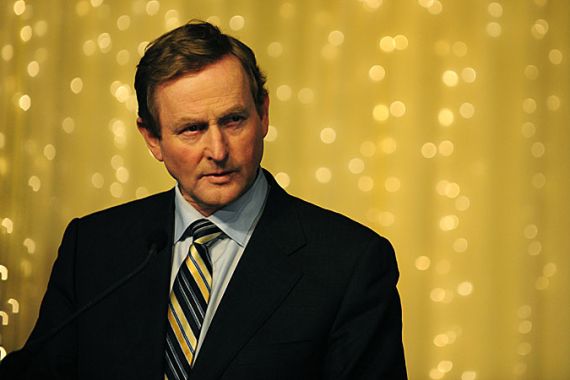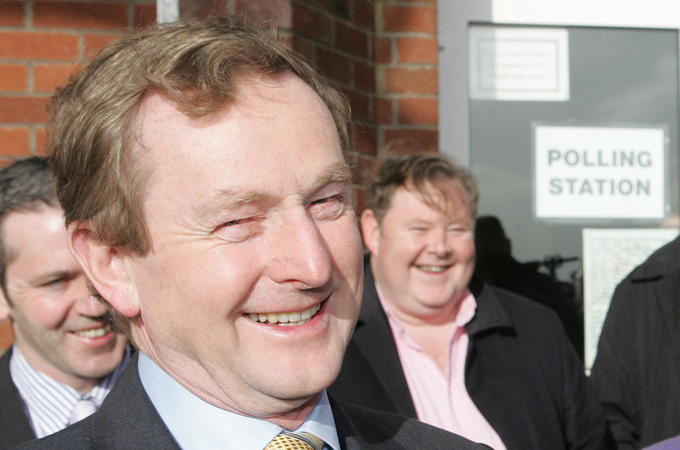Enda Kenny elected as Irish PM
Fine Gael leader will front coalition tasked with renegotiating an unpopular EU-IMF bailout in the debt-ridden nation.

 |
| Enda Kenny, a 59-year-old former teacher, is Ireland’s first Fine Gael prime minister since 1997 [EPA] |
Ireland’s parliament has voted in Enda Kenny, leader of the country’s Fine Gael party, as prime minister following a dramatic election last month.
The 59-year-old leader was elected by 117 votes to 27 by politicians in the lower house of parliament on Wednesday, facing no rival candidate – a first in Irish history.
His cente-right party formed a coalition with the centre-left Labour party following February’s general election, held in the wake of Ireland’s economic collapse.
Kenny now faces a difficult renegotiation of a joint International Monetary Fund (IMF) and European Union bailout package worth $115bn handed to Ireland last year after its economy suffered dramatically.
In his maiden speech, Kenny told politicians he was “very mindful of the task” ahead of him in rebuilding the economy, and that EU-IMF loans must be re-worked to make them more affordable.
“We do stand on the threshold of fundamental change, but there is equally another task, and that is the task of renewal,” he said.
Kenny, the first Fine Gael prime minister since 1997, is due to unveil his cabinet later in the day, which is expected to feature 10 members of his party and five from his Labour coalition partners.
Fine Gael won 76 seats and Labour 37 in Ireland’s February 25 election, both record highs, creating the biggest parliamentary majority of any Irish government.
The result was seen as a backlash against former ruling party Fianna Fail, which had dominated Irish politics for 80 years, but fatally oversaw the bailout of five banks.
Ireland’s budget deficit reached 32 per cent of GDP after the state bailout of the country’s banks, which had lent recklessly and fuelled an unsustainable property boom.
The coalition pledges to reform the much-derided finance ministry “by bringing in new leadership and skills to restore its capacity and credibility in financial and macroeconomic management.”
The ongoing struggle to prop up the five banks is expected to cost taxpayers more than $70bn.